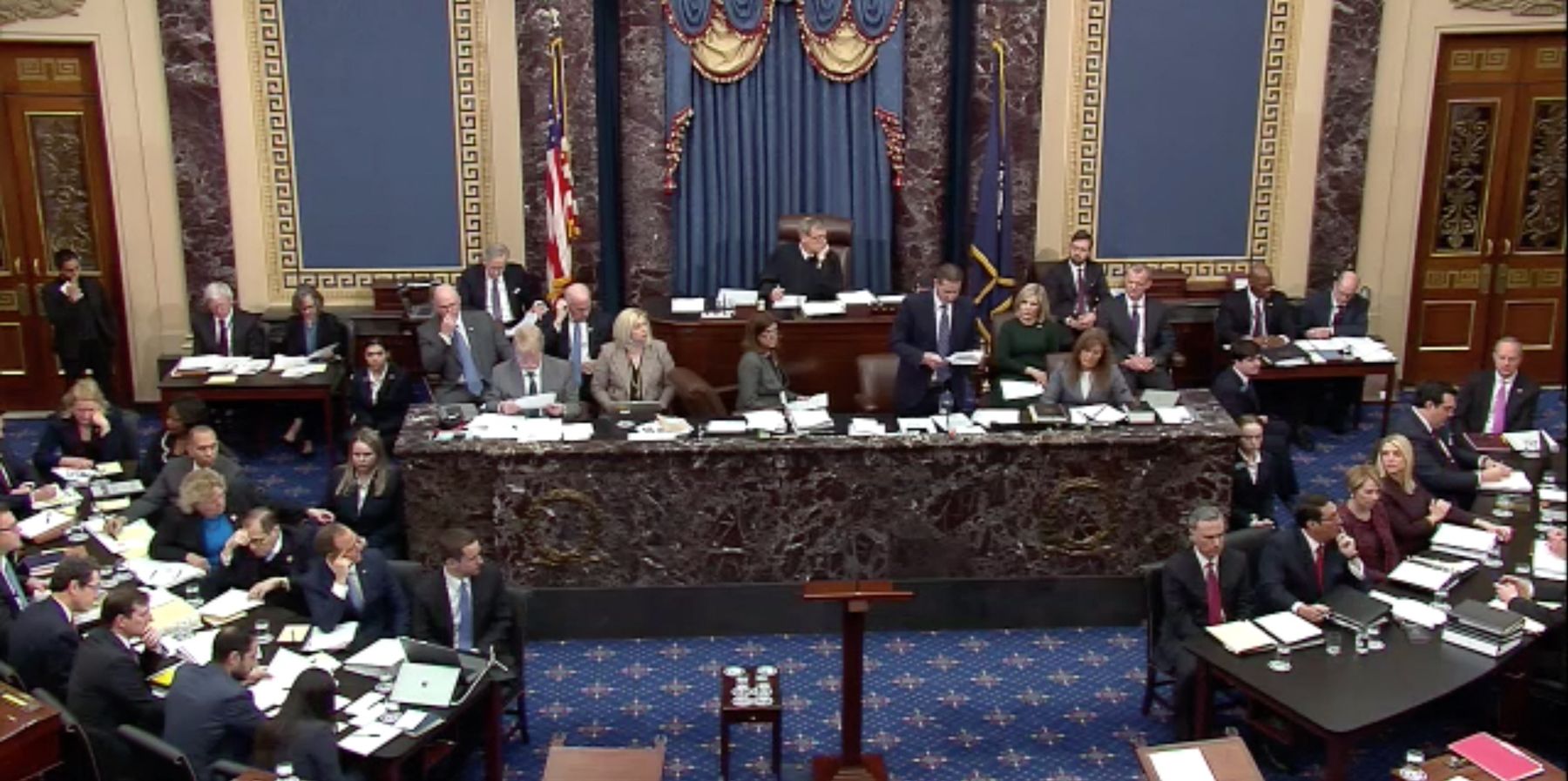The Senate voted Tuesday against advancing H.R. 23, which would impose sanctions on the International Criminal Court (ICC), to the Senate floor. This follows the successful passage of the same bill in the House — by a 243 to 140 vote — earlier this month.
The legislation is primarily a rebuke of the court for warrants issued in November for the arrest of Israeli Prime Minister Netanyahu and former Israeli Defense Minister Yoav Gallant for their alleged war crimes and crimes against humanity committed against Palestinians in Gaza.
But it turns out the Republican sponsors could not rally the 60 votes to advance the bill to the Senate floor. Only one Democrat, Pennsylvania's John Fetterman, voted with them, resulting in a final tally of 54-45.
Some Democrats have expressed support for legislation sanctioning the ICC but believe the current bill is too broad or, as Minority Leader Chuck Schumer indicated, “poorly crafted and deeply problematic."
New Hampshire Senator Jeanne Shaheen, top Democrat on the Senate Foreign Relations Committee, spearheaded negotiations with Republicans over some of the bill’s broad language and provisions. She and other Democrats were worried that the legislation, as written, could harm American tech contractors and companies that do business with the ICC and that the Senate should amend the legislation to protect these actors.
Humanitarian agencies have also expressed concern over the bill's potentially broad implications. Over 130 organizations sent a letter to Congress and the incoming administration urging “other governments, Members of Congress, and advocates for victims everywhere to raise their voices to oppose attacks on the independence and autonomy of international judicial institutions like the ICC.”
The letter points out that dismissing the ICC authority would undermine attempts to curb crimes against humanity in other countries where the United States has sided with the court, such as in cases against Putin in Russia and Sudan.
“(ICC) Sanctions send a signal that could embolden authoritarian regimes and others with reason to fear accountability who seek to evade justice,” claim the letter’s signatories."
Experts have also warned that sanctions could inhibit current investigations into other governments allied with the United States. In the Philippines, for example, the ICC is investigating extrajudicial killings that took place under former President Rodrigo Duterte and are allegedly occurring to this day as a consequence of Duterte’s harsh war on drugs.
“In the Philippines, reported extrajudicial drug war killings still number about one per day, and threats to the lives of people working to bring the perpetrators to justice are very real,” says David Borden, Executive Director at Stop the War on Drugs. “Sanctions have the potential to make the ICC unable to operate any of its programs, including those which provide protection to witnesses, and at a minimum would make things much more difficult.”
It is unclear if Republicans and Democrats in the Senate will work to amend the language of the ICC sanctions bill or if Republicans will opt to drop the issue for now.
- First order of House business: Protect Israel’s Netanyahu? ›
- House votes to sanction ICC for case against Israeli leaders ›
















